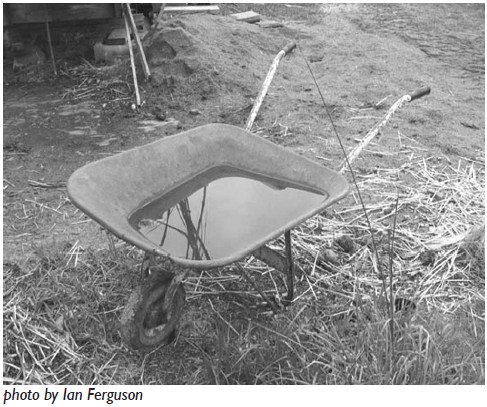The Green Reader: James Howard Kunstler's World Made By HandBy TJ Johnson
Science fiction? Quite possibly our future, according to novelist and social critic James Howard Kunstler. In World Made By Hand (Atlantic Monthly Press, 2008) Kunstler offers a provocative glimpse into a potential future that could await Americans in a post-peak oil, climate changed world. Kunstler's future is both unsettling and strangely compelling, but always within the realm of possibility to anyone who is paying attention to the historic challenges that confront us, as we enter the second decade of the 21st century. Though this book is his tenth novel, Kunstler is perhaps better known as a non-fiction writer. He first gained prominence with The Geography of Nowhere, a scathing indictment of automobile culture and suburban sprawl. The Long Emergency, his sweeping 2005 exploration of peak oil, climate change and what he called "sleepwalking into the future," was hailed as "brilliant" by the Washington Post, "compelling and eloquent" by Scientific American, and "funny, irreverent and blunt" by the Globe and Mail. Compared to The Long Emergency, World Made By Hand is a subtle work, filled not with oil depletion statistics and complicated geopolitical realities, but rather characters who are struggling to survive and find meaning in a radically changed world. The setting is Union Grove, a mythical town in upstate New York modeled loosely on Kunstler's own hometown of Saratoga Springs. The main character, Robert Earle, is a former high tech executive who now ekes out a living as a carpenter. A plague took his wife, and he has not heard from his son in years. His fellow townsfolk struggle with similar tragedy, all the while trying desperately to hold together some semblance of a functioning community. Into their midst come the horse-drawn wagons of a religious sect, the New Faith Order, fleeing the violence and breakdown of social order in their native state. The citizens of Union Grove are both suspect of the outsiders and welcoming of their new energy. When a supply boat owned by a local farmer turns up missing, Earle and members of the new group set off towards Albany to investigate. Along the way they discover the true extent of the collapse of their country: abandoned villages, crumbling highways and bridges, violent vigilantism and, everywhere, people traumatized by the reality of the new world. In one of the most powerful passages, Earle and the others explore the abandoned state capitol campus, and stumble into the alarmingly tidy office of the Lieutenant Governor. Admitting that "things look bad" the public official refuses to acknowledge the total collapse of governmental authority, waiting in vain for the return of the Governor who has not been heard from in years. Eventually, Earle and the other travelers return to Union Grove, with the full realization that what had been thought to be only rumor is actual fact. Union Grove is on its own, the world forward will be what they make of it. They set about repairing the city's broken water system, reestablishing a functional city government, confronting the violent gangs that have been terrorizing the townsfolk, and establishing a fragile but functional relationship between the locals and the New Faith Order. Sprinkled throughout the book are vignettes of how daily life unfolds in a world without fossil fuel - local food production, small-scale human powered industry, and basic medical procedures. Along the way the point is made clearly and repeatedly that much of what we take for granted today, from our morning java to our night-time reading lamp, are only made possible by a complicated system that puts human needs and economic concerns above physical and ecological realities, and is therefore unsustainable. Some readers may not like the future Kunstler presents, particularly those who harbor the illusion that some as-yet-to-be-invented technology will allow them to maintain today's lifestyle into the future. Others may find a glimpse of a future life that would be both sustainable and potentially more enriching to the human spirit. Either way, for the engaged reader, World Made By Hand should spur contemplation about how what we are doing today will create, for better or worse, the kind of future our children and grandchildren will inherit tomorrow. TJ Johnson is a voracious reader, a passionate gardener, a community organizer, and a recovering elected official.
Back to Home page. |

 Imagine a world without automobiles or electricity. A world where imported coffee and bananas are only available on the black market. A world where mysterious diseases and violent conflicts have dramatically reduced the human population. Central government authority has collapsed. Those who survive live intensely local lives in scattered small villages, fearful of roaming bands of criminals and clinging to increasingly dim memories of the good old days of conspicuous consumption and fossil fueled fantasies.
Imagine a world without automobiles or electricity. A world where imported coffee and bananas are only available on the black market. A world where mysterious diseases and violent conflicts have dramatically reduced the human population. Central government authority has collapsed. Those who survive live intensely local lives in scattered small villages, fearful of roaming bands of criminals and clinging to increasingly dim memories of the good old days of conspicuous consumption and fossil fueled fantasies.